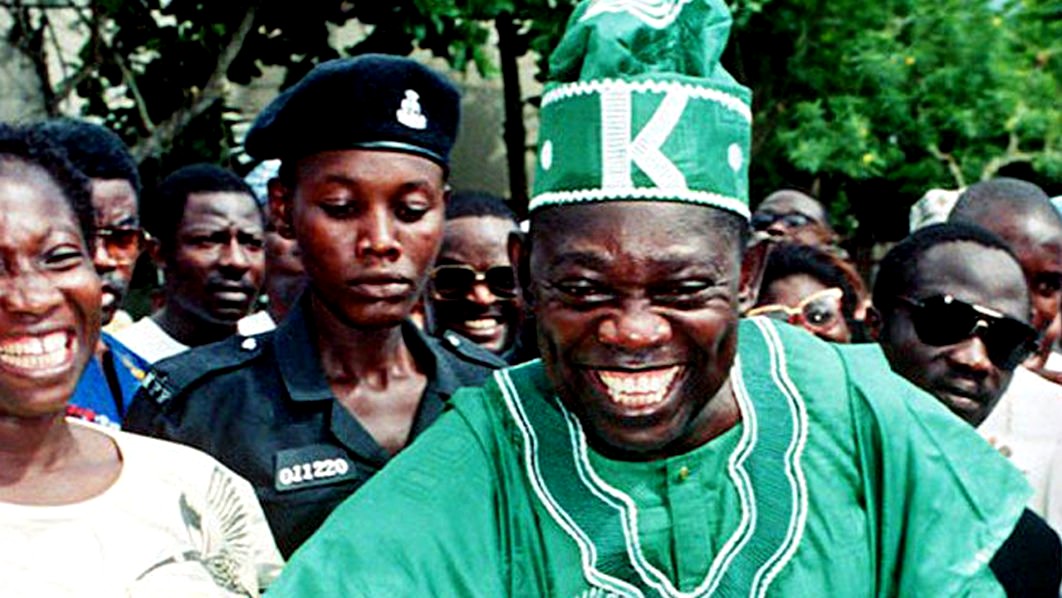Twenty one years after the death of the winner of the June 12, 1993 presidential election, Chief Moshood Kashimawo Olawale Abiola, the cause of his death is yet to be known by many Nigerians. However, his struggle for a better Nigeria has now been deservedly recognised and appreciated by the Federal Government under President Muhammadu Buhari, as Nigeria has finally recognised June 12 as Democracy Day, 26 years after.
The memories of the 1993 election are still fresh in the memories of many Nigerians who witnessed the late MKO during his campaigns as he promised them hope and confidence, but the hope was dashed by the Nigerian overlords of that period, with no explanation, no apology and no reprimand for those who committed the crime against the people of Nigeria.
Exactly on July 7, 1998, M.K.O Abiola died in the hands of those who arrested him for daring to actualize his mandate. There is no doubt that ‘every soul shall taste death’ (Qur’an 3:185).
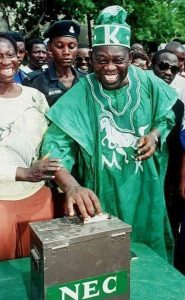
A great number of youths of Nigeria do not know who Abiola was, what he represented, and his contributions to Nigeria’s development. The reaction of many youths to the naming of UNILAG after MKO in 2012 by former President Goodluck Jonathan before it was later recanted indicates the lack of adequate knowledge of his massive interventions in education and Nigeria in general. As a modest contribution to honouring him, we document his life and his philanthropic activities to his faith and education in this tribute.
The possession of wealth and readiness to part with the wealth are major determinants in philanthropism. Wealth is a bounty from Allah and it is not to be seen as evil (Qur’an 4:32). In Islam, there is no virtue necessarily in being poor and there is no sin in being wealthy and being wealthy can be a much virtuous position.
Islam emphasises that wealth must be used for the benefit and satisfaction of human wants. However, wealth must not be idolized or serve as obstacle between man and his creator (Qur’an 28:77). It is good for Muslims to make lawful money so that they can support themselves, their families and give excess in charity for the sake of Allah.
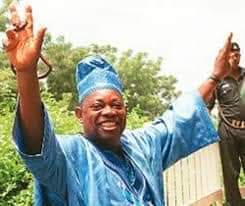
It is in this respect that the life and philanthropic activities of Moshood Abiola (1937-1998) is important in the history of Islam in Nigeria.
HIS BIOGRAPHY
Moshood (Mas’ud) Kasimawo Olawale Abiola was born on the 24th of August,1937 at Soleye compound, Oja- Agbo, Gbagura in Abeokuta to Salau Abiola (d1979). His mother was Zulikha Wuraola Abiola(d1956). His father was a farmer and later a produce buyer who had twenty two children before Moshood was born and all the children died before reaching six months.
It was the mystery surrounding the death of the earlier children that made Salau to name Moshood with the Yoruba name of Kasimawo ( let us wait and watch over this also). The jinx was broken with the birth of Moshood for not a single child of Salau died after his birth as he later had eight brothers and two sisters.
He started his Islamic education at the age of three when he began his Qur’anic studies under Alfa Nda Takpa who taught him the recitation of the Qur’an and did his Quranic graduation on the 2nd of November, 1946. For his formal education, he started at Nawair ud deen School, Isale Ijeun, Abeokuta in 1944, African Central School, Ita Iyalode between 1945-1949 and later moved to Owu Baptist Day School which was thought at that time to be the easier way to gain admission to the Baptist Boys High school, Abeokuta. He came from a poor family and used to fetch firewood around Olumo rock for sale in order to finance his education.
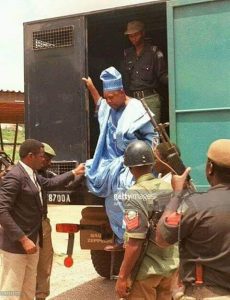
Abiola started from humble beginning by setting up local musical group called Agidigbo music from money given to him by his grandmother when he was seventeen years old. He passed the entrance examination to Government College, Ibadan with Scholarship from the Western Region Government and also passed entrance examination to Baptist Boys High School, Abeokuta. His father did not allow him to go to Ibadan due to the distance in view of the scholarship. He entered Baptist Boys High School, Oke Saje, Abeokuta in 1951 and left in 1956 with outstanding result of Grade one.
After graduation, he joined Barclays bank Ibadan (now Union Bank) as a clerk on a salary of one hundred and five pounds per annum. He proceeded to Glasgow University to study accountancy in 1961 with Scholarship from federal Government of Nigeria. At Glasgow, he distinguished himself as a brilliant student by attaining the first prizes in Business Law, Political Economy and General Management Accounting.
He began his professional training in the firm of Stewart and McNair in the first two years of his apprenticeship before transferring to the larger firm of Turner, Hutton and Lanson for the final stage of his training. He acquired a wide variety of professional practice and very detailed exposure to accounting and financial problems especially in ship building, heavy engineering industry and local government audits. The training in these companies turned out to be invaluable to his future career.
In 1965, Abiola qualified as an accountant, he passed the Chartered Institute of secretariat Examination with King George V medal in 1964, the Institute of Marketing Examination also in late 1964 with Distinction.
On his return to Nigeria after training in Glasgow, he joined the Lagos University Teaching Hospital where he served as deputy Chief accountant between 1965-67. He left the service of the Teaching Hospital according to him when he discovered the limited challenges in the job and joined Pfizer in 1967 as divisional Controller of the Agriculture division. While in Pfizer, he pioneered the establishment of the Animal Feed factory of the Organization in Ghana. He left Pfizer in 1969 and moved to International Telephones and Telegraphs (ITT) a corporation that was owed a considerable debt by the Nigerian army. He rose to the position of Managing Director in 1971. After securing the recovery of the debt, Abiola was named the company’s chairman in Nigeria and its vice president for Africa and the Middle East.
He was also a Director of Habib Bank(Nigeria), a Director of Decca, a phonogram company and established the famous Concord Press in March 1980. He was a baker; he was the Chairman and Chief executive of Wonder Bakery Limited. In order to address the problem of buying cars by commuter operators, he established a car purchasing venture in 1982 which was meant to assist the less endowed Nigerians to improve on their standard of living.
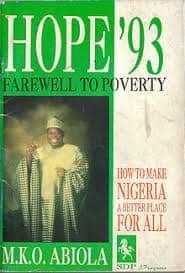
He also incorporated a N4.8 million Abiola Farms Limited in order to cushion the effect of high cost of staple food in the country. He also established Radio Communications of Nigeria (RCN) and Abiola bookshop. He was a man of many parts whose business interests spread around sixty countries. He was also the owner of Summit Oil Company and participated in the exploration of the black gold in Nigeria. He was indeed a successful businessman.
Next: ABIOLA, ISLAM AND PHILANTHROP

